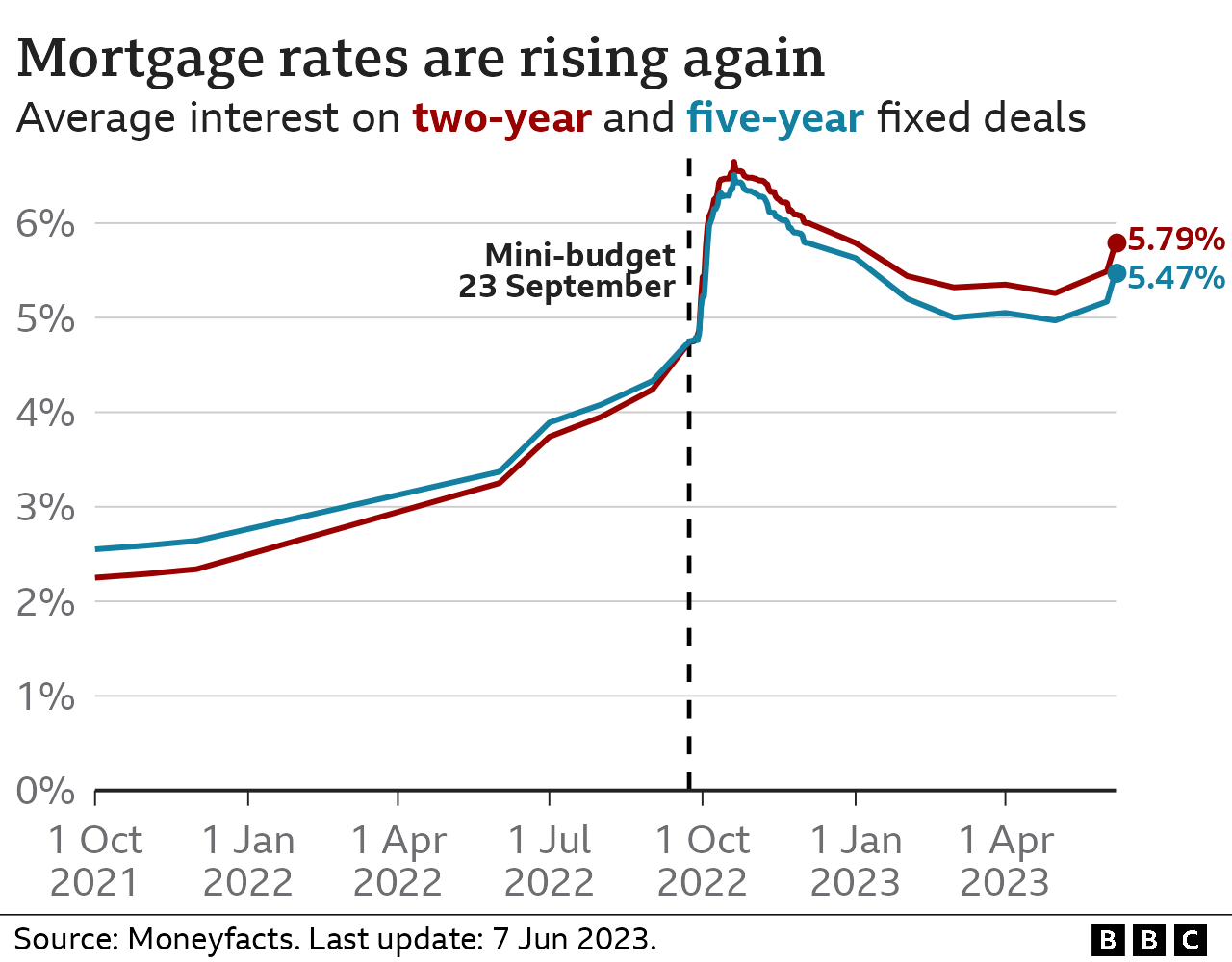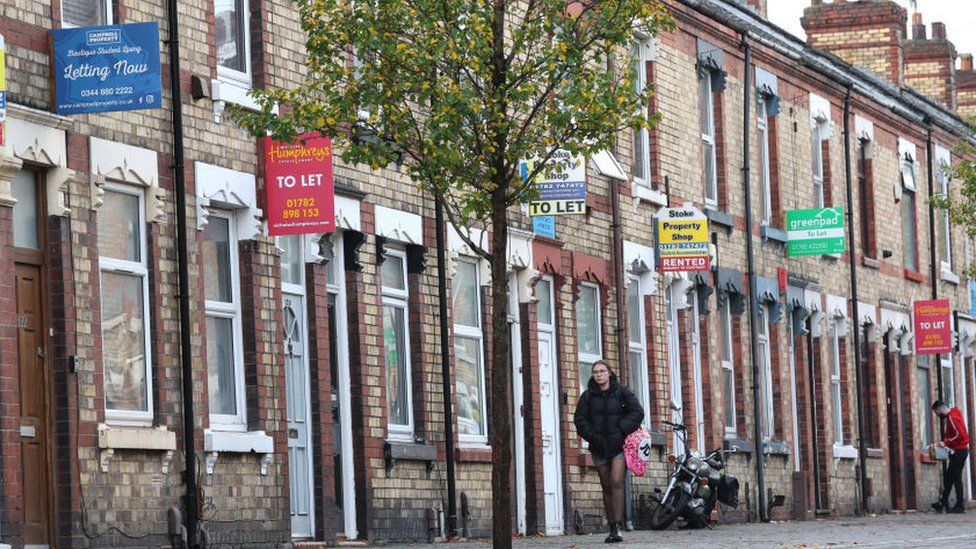Surveyors claim that because of the pressure from rising interest rates, some landlords are considering selling their properties.
The Royal Institution of Chartered Surveyors (RICS) asserts that as a result, there may be a further decrease in the supply of rental homes and an increase in renter expenses.
The possibility of an English ban on no-fault evictions has some landlords thinking about their own futures.
The UK housing market is under "storm clouds," according to RICS.
Because general price increases, as measured by inflation, are taking longer than expected to slow down, lenders believe the Bank of England will increase interest rates once more.
Due to this, mortgage rates have increased more than anticipated for all borrowers, including those who are buying a home and refinancing as well as landlords and owners of buy-to-let properties.
Renters Reform Bill and higher rent prices are likely to exacerbate the already limited supply of rental homes, according to RICS, which represents surveyors.
Less rental housing means that demand continues to outpace supply, which drives up the cost of renting the properties that are still on the market.
"Interest rate increases are also having an effect on the rental market, and when combined with the impending reforms outlined in the government's Renters (Reform) Bill, landlords are increasingly choosing to exit the market and sell up property, further reducing the supply of rental units," according to Tarrant Parsons, senior economist at RICS.
A newly proposed law in England would make it illegal for landlords to evict tenants without cause.
The important housing law known as Section 21 permits landlords to evict tenants without providing a reason.
Tenants only have two months after receiving a Section 21 notice before their landlord can ask the court to order them out.
Everyone's mortgage rates are rising, and analysts predict that this will slow the housing market as buyers either can't find a mortgage that works for them or decide to wait for rates to decrease.

Property owners, including landlords, are subject to many of the same pressures and would be impacted by further anticipated increases in interest rates by the Bank of England.
As the market imbalance worsens month after month, reports from the agents "read as increasingly desperate cries for help," according to Sarah Coles, head of personal finance at investment platform Hargreaves Lansdown.
If supply shrinks, that might raise rents.
"These increases will only make matters worse given that rent consumes a much larger portion of people's incomes than mortgages. It will be even more challenging for renters to manage their finances as a result, according to Ms. Coles.
Higher mortgage rates for all homeowners looking for a new fixed deal, according to RICS, have created storm clouds.
Brokers have cautioned clients that they will likely face significant increases if they choose to temporarily switch to a standard variable rate rather than try to ride out the current hikes.
Many people, including older borrowers who are unable to refinance and homeowners who do not qualify for rate switches when their fixed deals expire, are stuck on these extremely high standard variable rates, according to Trinity Financial broker Aaron Strutt.
"While some lenders have significantly higher standard variable rates than others, we advise our clients to make sure they choose a lender that treats its clients fairly when their rates expire. ".
Find out more about your rights as a renter and where to find assistance here.







